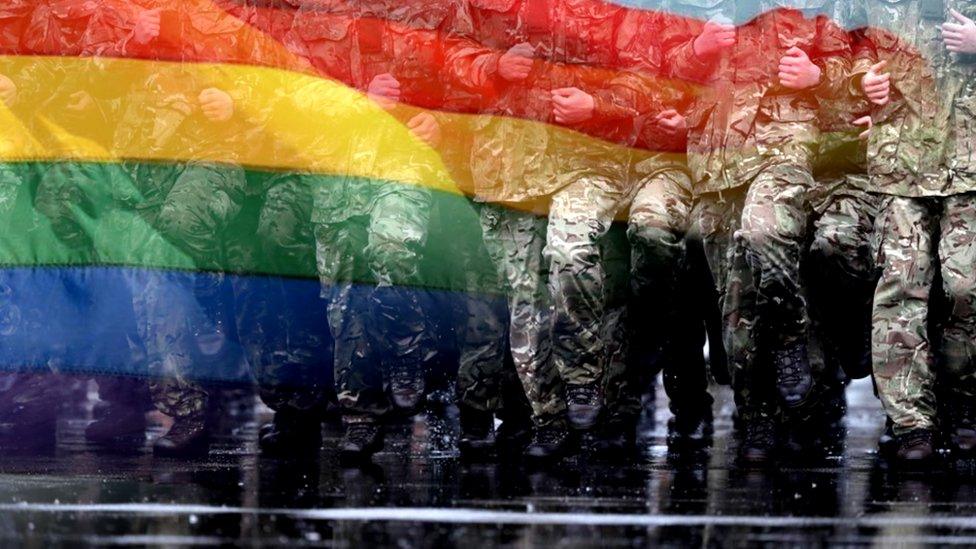LGBT military ban victim tells of memorial pride
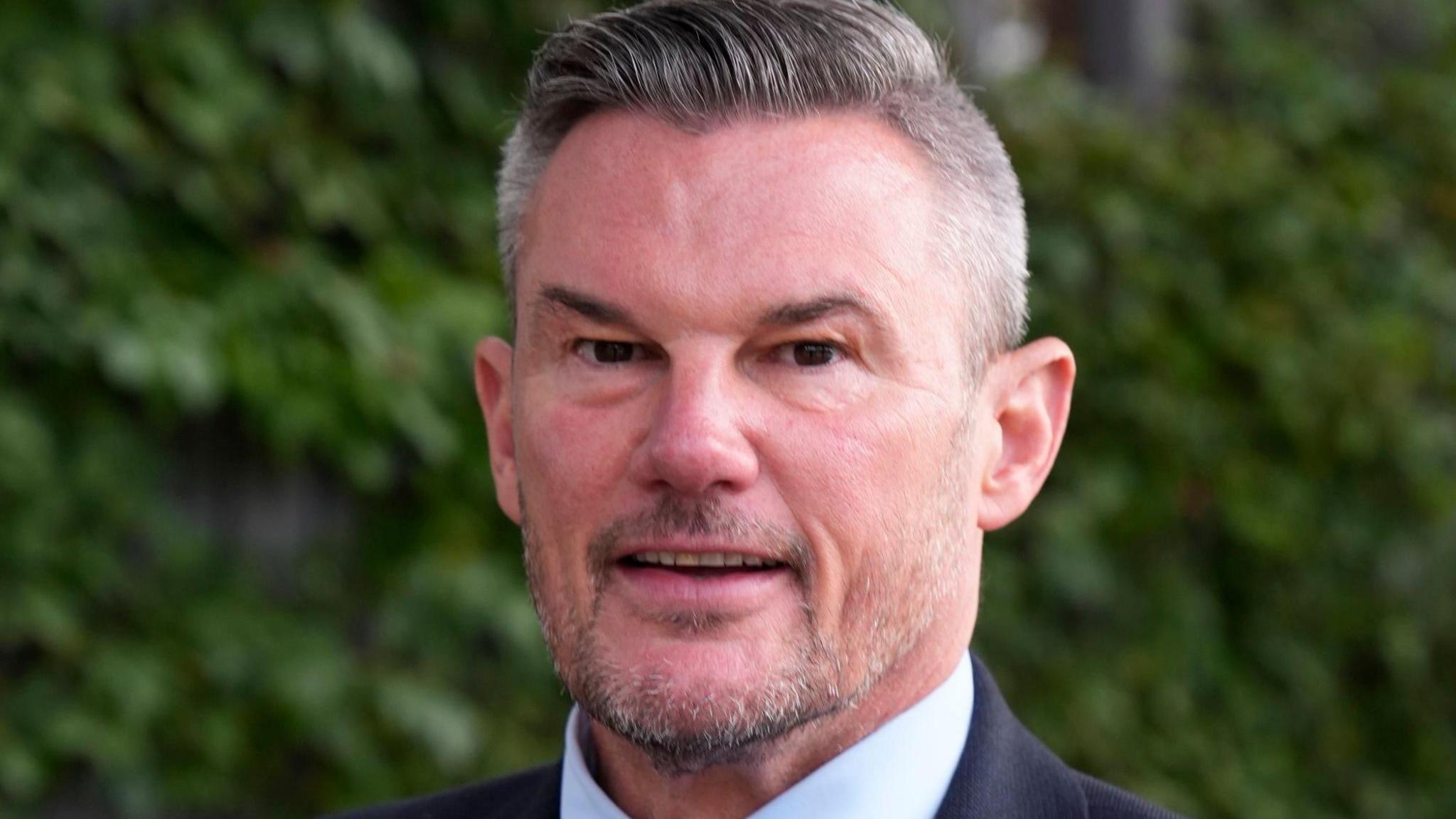
Carl Austin-Behan joined in 1991 and was dismissed six years later for being gay
- Published
A former RAF firefighter who attempted the daring rescue of a pilot but was later thrown out of the military for being gay was among veterans gathering as the King attended the dedication of a special LGBT memorial.
Carl Austin-Behan, from Manchester, was one of dozens of former soldiers, sailors and airmen and women who attended the ceremony at the National Memorial Arboretum in Staffordshire, on Monday.
King Charles's visit of the sculpture, named An Opened Letter, was the monarch's first official engagement in support of the LGBT community.
It was built in honour of those who served at a time when it was illegal to be gay in the military.
During the ban, which lasted until the year 2000, those who were gay - or were perceived to be - faced intrusive investigations, dismissal and in some cases imprisonment.
Austin-Behan joined in 1991 at the age of 19 and was dismissed six years later.
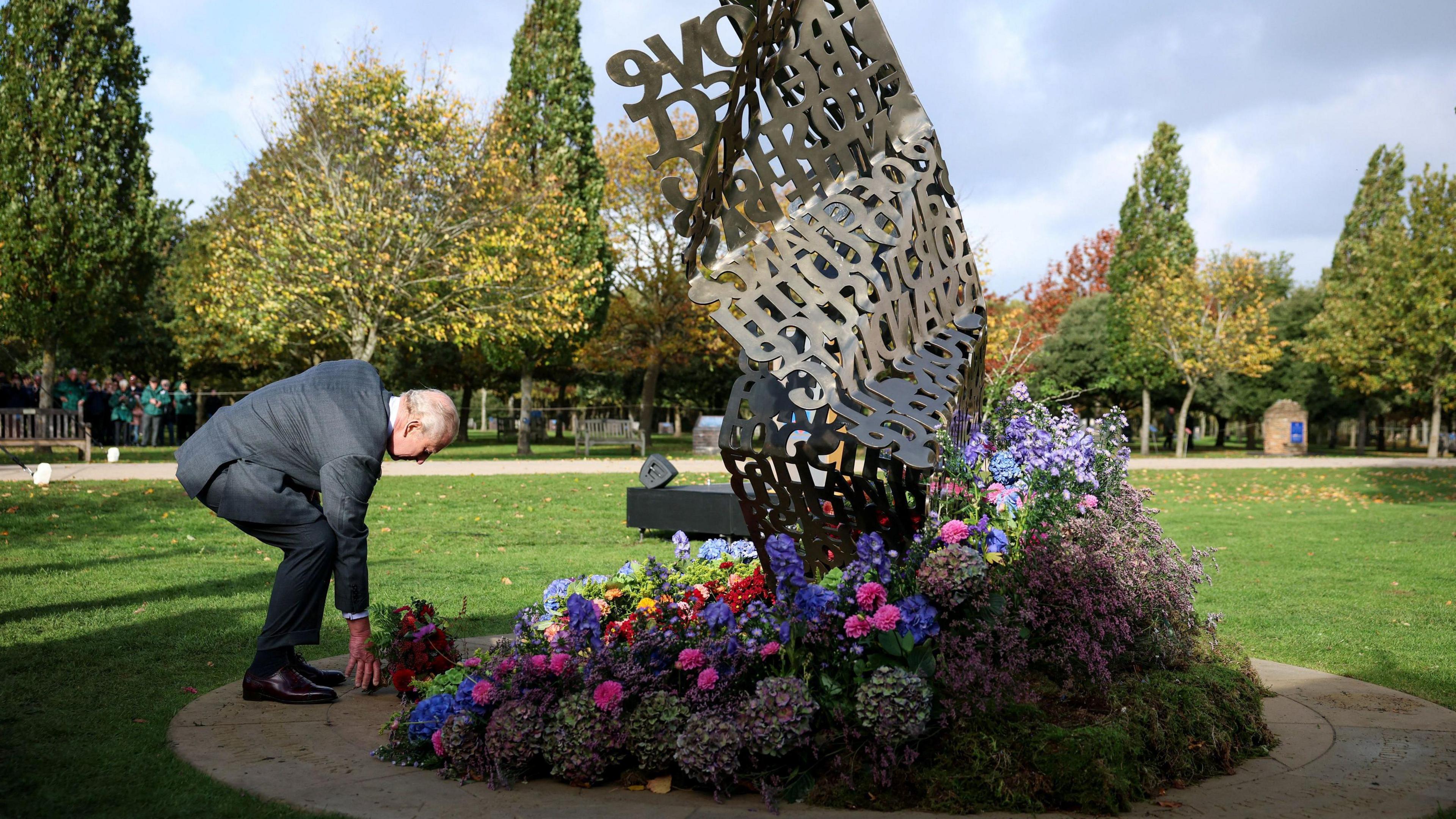
King Charles visited the sculpture, named An Opened Letter
He said: "The significance of the memorial blows me away.
"An Opened Letter takes me back to letters I wrote and received at a time of intense secrecy, with hidden words and changed identity."
Mr Austin-Behan was given a Royal Humane Society medal after he attempted to save a pilot from a Hawk aircraft at RAF Chivenor, in Devon, in 1992.
He said: "In April 1997 the air force found out I was gay and within 10 minutes I was escorted off camp."
He said he was told he was "incompatible to service life" and "lost everything", becoming homeless.
He said: "My life was completely changed over night because of my sexuality."
Among others in attendance was Carol Morgan, from Surrey.
She explained how she joined the Army in the late 1970s but was thrown out after four years of service.
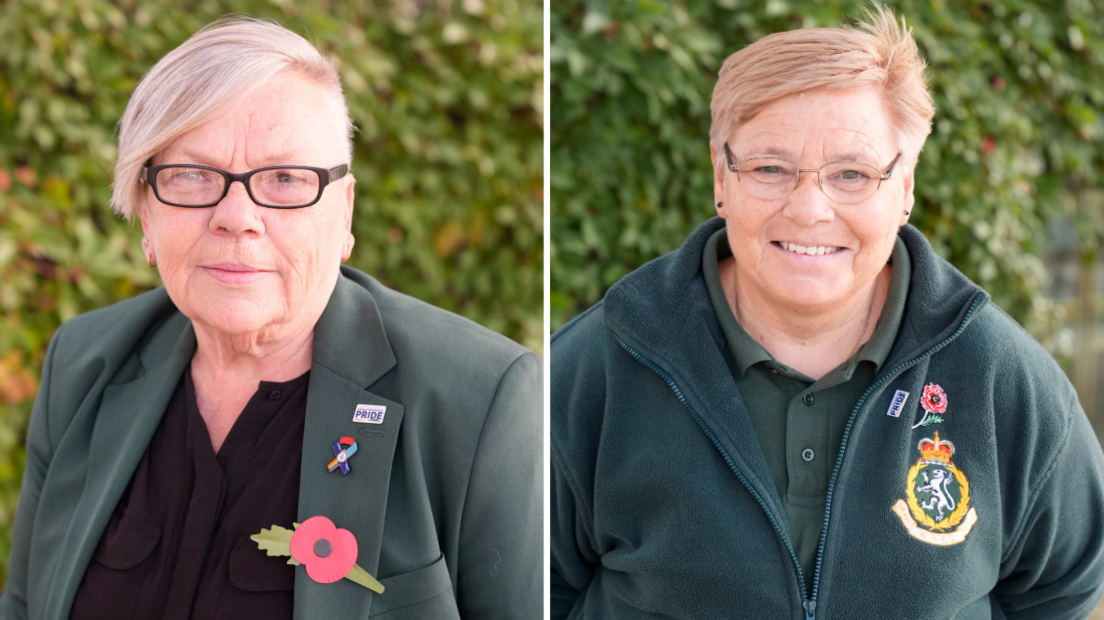
Carol Morgan, left, and Alison Smitham were also dismissed due to their sexuality
Ms Morgan said her room was ransacked, she was interviewed for six-and-a-half hours and sent to a psychiatrist because her sexuality was seen as a mental illness.
She said: "This memorial means everything to us. I hid my sexuality for over 36 years. It destroyed me completely.
"Generations are going to know that we did exist and we weren't just a dirty little secret."
Booted Out by the Gay Ban
Interrogated, detained and dismissed. Military Gay Ban survivors tell us their stories.
Alison Smitham, from Cumbria, was dismissed within 18 months of joining the Army in 1983.
She said: "Since I was 11 years old I wanted to join the armed forces and, in a flash, it was just gone.
"It was just such a devastating thing and it's hard for someone to understand who's not been in this circumstance exactly what it felt like.
"It's just almost life ending."
Ms Morgan and Ms Smitham both said they were extremely proud to have their berets returned by the Women's Royal Army Corps, who they said have gone "above and beyond" to rehabilitate them.
Get in touch
Tell us which stories we should cover in Greater Manchester
Listen to the best of BBC Radio Manchester on Sounds and follow BBC Manchester on Facebook, external, X, external, and Instagram, external. You can also send story ideas via Whatsapp to 0808 100 2230.
Related topics
- Published27 October
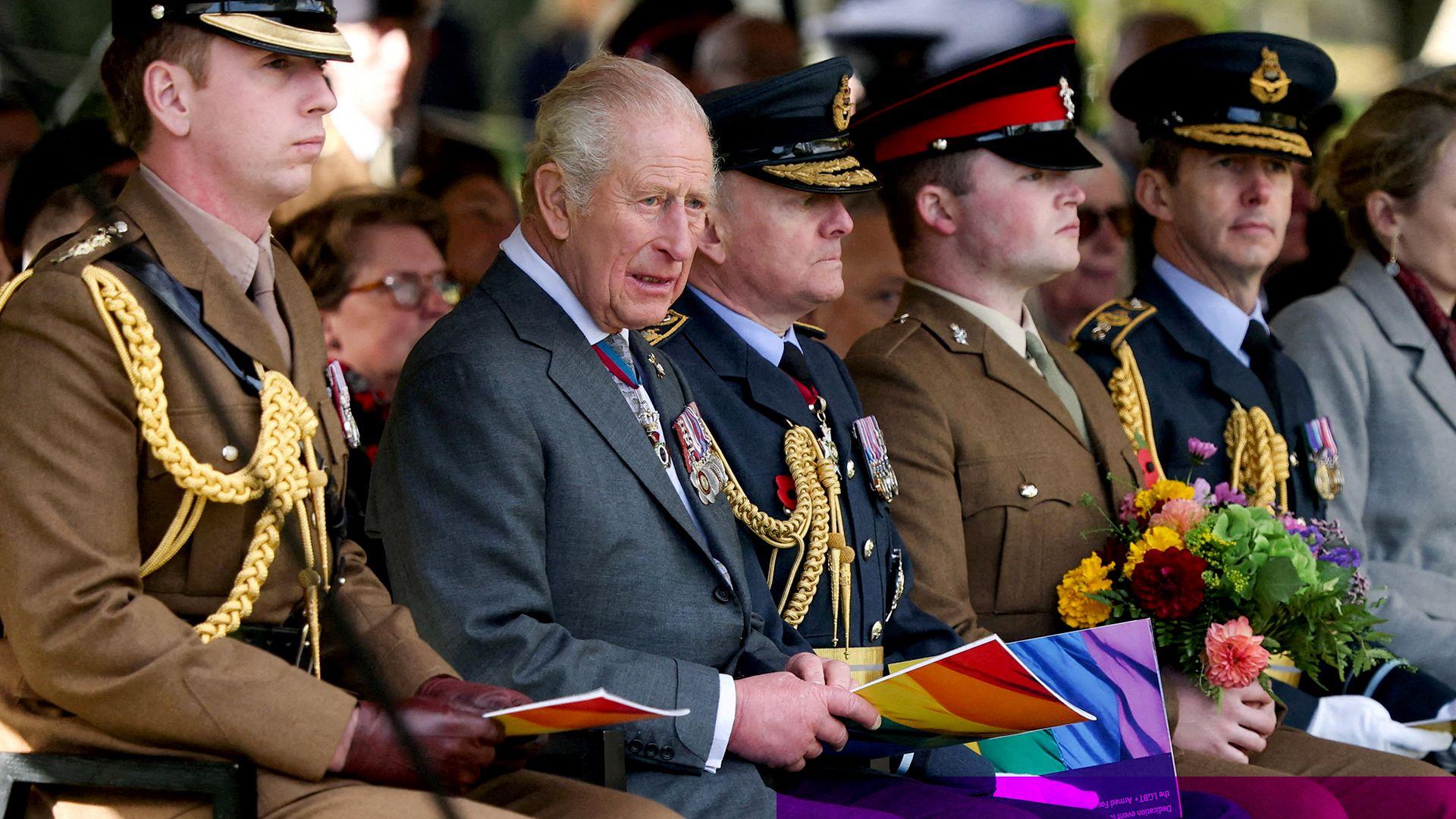
- Published19 January 2022
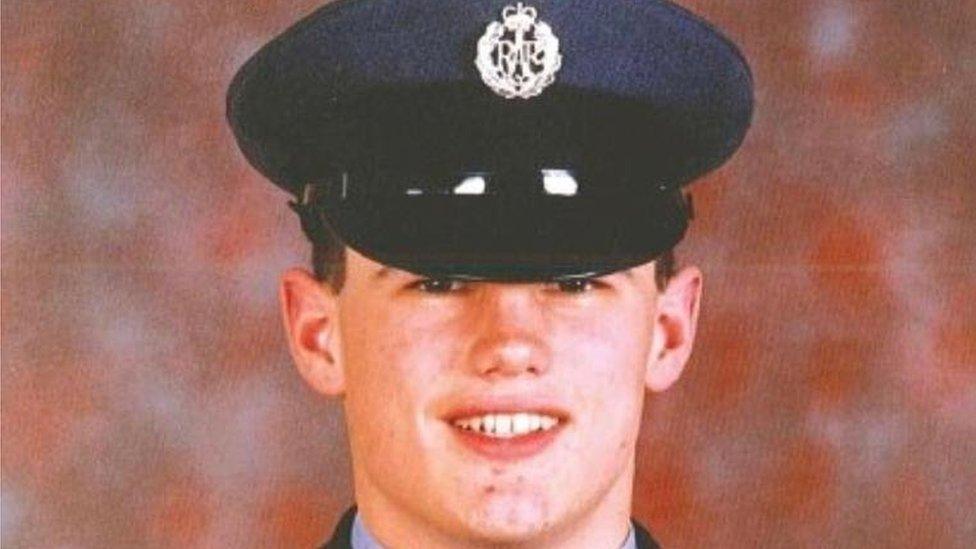
- Published26 February 2021
